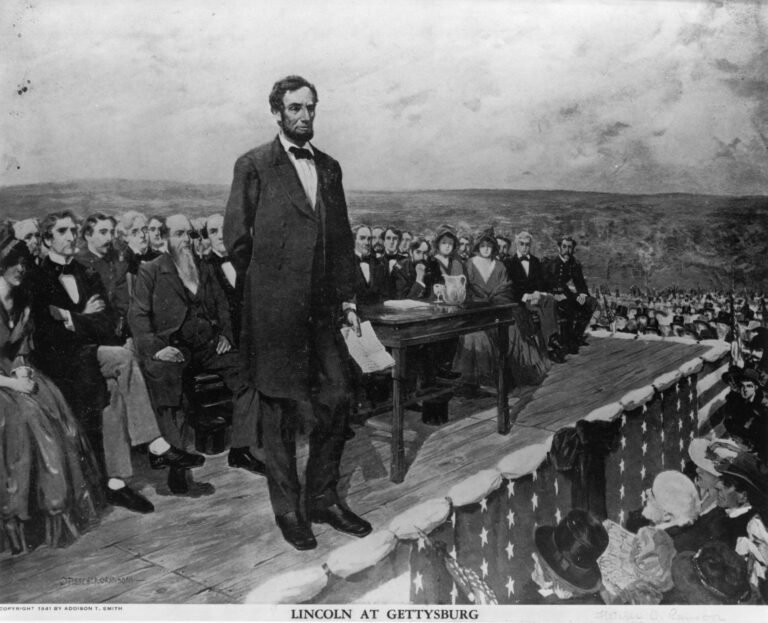Abraham Lincoln, the 16th President of the United States, is remembered not only as a statesman who led the nation through its darkest hour but also as a profound thinker and philosopher. Despite his busy schedule and the immense weight of his office, Lincoln grappled with deep questions about human nature, morality, and the pursuit of a just society. His words, often born from personal experience and infused with a deep understanding of human psychology, continue to resonate with us today.
A Brief Glimpse into Lincoln’s Life
Born in a log cabin in Kentucky, Lincoln’s early life was marked by hardship and limited formal education. However, he possessed an insatiable thirst for knowledge, devouring books and engaging in lively debates with his peers. Through sheer force of will and intellectual curiosity, he rose from humble beginnings to become a successful lawyer and a prominent figure in Illinois politics.
Lincoln’s political career was defined by his unwavering commitment to the abolition of slavery and his belief in the inherent equality of all men. He navigated the turbulent waters of the Civil War with a combination of pragmatism and principle, guiding the nation through a period of unprecedented crisis.
Lincoln’s Philosophical Musings
Beyond his political accomplishments, Lincoln’s words offer timeless insights into the human condition. Let’s delve into five of his most profound philosophical quotes:
“The best way to destroy an enemy is to make him a friend.” This quote transcends the realm of politics and speaks to the fundamental human desire for connection and understanding. In a world often characterized by conflict and division, Lincoln’s words serve as a powerful reminder that empathy and reconciliation are ultimately more effective than violence and retribution. This principle remains highly relevant today, as we grapple with issues like international relations, social justice, and the healing of deep-seated societal wounds.
“Nearly all men can stand adversity, but if you want to test a man’s character, give him power.” This astute observation highlights the corrupting influence that power can exert on even the most virtuous individuals. It serves as a cautionary tale for those in positions of authority, reminding them to remain grounded, humble, and mindful of the ethical implications of their actions. In today’s world, where power dynamics are constantly shifting and the struggle for influence is fierce, this quote remains a crucial reminder of the importance of integrity and self-awareness.
“Character is like a tree and reputation like a shadow. The shadow is what we think of it; the tree is the real thing.” This quote delves into the distinction between outward appearance and inner truth. It emphasizes the importance of genuine character over superficial image. In an age of social media and carefully curated online personas, this quote serves as a powerful reminder to focus on cultivating authentic relationships and building a life of integrity rather than chasing fleeting fame or external validation.
“You can fool all the people some of the time, and some of the people all the time, but you cannot fool all the people all the time.” This quote speaks to the limitations of deception and the eventual triumph of truth. It suggests that honesty and transparency are ultimately the most effective and sustainable approaches. In a world saturated with misinformation and propaganda, this quote serves as a powerful reminder of the importance of critical thinking, independent verification, and a commitment to truth-seeking.
“The best way to predict the future is to create it.” This quote emphasizes the power of agency and the importance of proactive action in shaping one’s destiny. It suggests that rather than passively waiting for the future to unfold, individuals have the capacity to actively influence the course of events. This message of empowerment and optimism remains highly relevant today, inspiring individuals to take charge of their lives, pursue their dreams, and work towards a better future for themselves and their communities.
Conclusion
Abraham Lincoln’s philosophical insights, born from a life of profound experience and reflection, continue to offer valuable lessons for navigating the complexities of the modern world. His words on empathy, integrity, truth, and the power of agency serve as a timeless guide for individuals and societies striving for a more just and equitable future. By embracing these enduring principles, we can honor Lincoln’s legacy and work towards building a world that reflects the ideals of equality, justice, and human dignity.

